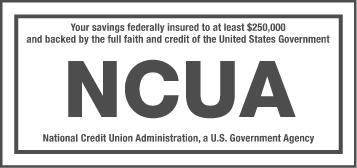
Do you need to downsize? A quick quiz
posted on
January 19, 2026
Perhaps you’ve seen the mountains of dust accumulating in that den you don’t go in anymore or witnessed tumbleweeds passing through that extra, extra bedroom. Or maybe you’ve just looked at your electric bill lately…and gasped. No matter the reasoning, if you’ve got more space than you really need you’ve probably considered downsizing into a smaller dwelling at some point. Here are questions to ask yourself when you’re considering the change.
What is my equity position in the current home?
Having a positive equity position in your home is a big deal, since it’ll make it a lot easier financially to get into a new place. If you sell the home and receive less than what you owe on the mortgage(s), you’ll have to use your own money to make up the difference or face the consequences of a short sale. In other words, if you’re in a negative equity position, downsizing might not be your best option.
How much money will I save on monthly housing payments?
If you’ve given serious thought to downsizing, you’ve probably looked at what it would cost to live in a new place. When you’re comparing that number to what you currently pay, don’t forget to include categories like taxes, maintenance and repairs for the future. Also, pay close attention to utilities since there can often be a dramatic difference between what you’ll pay in a larger home and what you would pay in a smaller home, apartment, or condo. Sometimes these expenses can tip the scales so much that downsizing is the better option.
Does my current neighborhood still fit my needs?
It’s not just the house that should be weighed when making a decision on downsizing. If you moved into a neighborhood because it had great schools or lots of wide-open space, as you get older those things may not matter anymore. Downsizing could mean being able to find an area that’s better for what you want now while also saving you money.
Will I be able to maintain the property in the years to come?
Maybe at one point you were gung-ho about climbing ladders to do fix-it projects or spending all day on a yard project. But as you get older, you may not be able to maintain the property like you once did. This could mean increased expenses in the future, or if you can’t afford to hire someone to do these things, it could result in the property quickly losing value as it falls into disrepair. Sometimes it’s best to sell a home when you’re still able to keep it at its most marketable.
What’s my relationship with my stuff?
Many people find it liberating to get rid of a good deal of their accumulated belongings since they feel less controlled by their possessions. Others have sentimental or practical attachments to certain items that require a fair amount of space to store. Either way, think about what you would really need to have with you in the home and then decide how much space it’ll take going forward to keep it.
What are my space needs for guests?
You may enjoy having a larger space to host family members or friends who come to visit. Think about the maximum number of visitors you have at one time and if you can accommodate them in a smaller space. Many people find that even in a smaller place they’re still able to have plenty of guests.
This article is for informational purposes only and is not intended to provide tax, legal, or accounting advice. You should consult your own tax, legal, and accounting advisors for advice. All loans subject to approval. Actual rate and terms may vary depending on individual’s credit history and other factors. Membership required. SRP is federally insured by NCUA. Equal Housing Lender. NMLS ID #612441.
Article Credit: BALANCE













